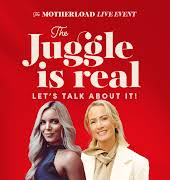
The summer holiday season is here, even if the weather hasn’t quite got the memo; promising a break from our daily grind and with it our annual chance to recharge. Yet the reality is that so many of us find it almost impossible to slow down and step away from it all, even when the world around us is urging us to hit pause.
The ability to slow down is vital for lots of reasons; it offers so many benefits that significantly and fairly instantly enhance your overall wellbeing. It allows you to reduce stress and prevent burnout by giving both your mind and body the time they require to rest and recharge.
Taking things at a slower pace also improves your mental clarity and focus, enabling you to make better decisions and ultimately be much more productive when you do come back to your tasks. Additionally, it enhances your ability to be present and mindful, fostering deeper connections with yourself and others.
And of course, by decelerating, you create space for greater self-reflection and personal growth, which can lead to deeper fulfilment and a far more balanced life, which ultimately is what we are all seeking!
Why do we find it so hard to slow down?
Unquestionably, the demands of modern life and work, driven by technological advancements, societal expectations, and our own personal ambitions, have created an environment where constant busyness has become the norm.
1. Being constantly connected
The advent of smartphones and the Internet has revolutionised how we communicate and how we work. While these technologies offer unparalleled convenience and efficiency, they also blur the lines between our work and our personal lives. Emails, messages, and notifications follow us everywhere, creating an expectation of immediate response and continuous availability. Many of us as a result experience our own version of ‘addiction to immediacy’ and this perpetual connectivity makes it challenging to unplug as we feel compelled to stay engaged and responsive at all times.
2. ‘What will they think?’
How often do you hear people say ‘I’m just so busy’ as if it’s something to celebrate? Our world now equates busyness with success. The hustle culture glorifies long hours, multitasking, and relentless productivity, promoting the idea that slowing down is synonymous with laziness or lack of ambition. Social media exacerbates this further by showcasing curated images of people’s achievements and busy lifestyles, fostering a competitive environment where slowing down feels more like falling behind.
3. ‘I can’t afford not to be seen to be available’
The current economic uncertainties and job market volatility are contributing to the ongoing challenge of switching off fully. In many industries, job security is no longer guaranteed, prompting us to work harder and longer to prove our value, to be seen to be dedicated and to secure our positions. The gig economy further intensifies this pressure, as freelancers and contract workers often juggle multiple jobs without the luxury of paid time off or predictable income, making it hard to justify slowing down.
4. The mental and physical health implications
The inability to slow down has significant repercussions on mental and physical health. Chronic stress, burnout, and anxiety are common consequences of a perpetually busy lifestyle. Lack of downtime impedes the body’s ability to recover and recharge, leading to long-term health issues. Despite awareness of these risks, the momentum of a fast-paced life can be hard to break, perpetuating the cycle of busyness.
Strategies for slowing down
Despite these difficulties, it is still possible to slow down with intentional effort. Here are some strategies you might want to consider:
Set boundaries: Commit to learning, not just thinking, about saying NO! Establish clear boundaries between your work and your personal life. Or if at all possible, turn off all your notifications, and remove all of your work-related apps from your phone while on holiday
Simplify your schedule: Evaluate your commitments and identify areas where you can cut back. Focus on activities and goals that truly matter to you and let go of those that no longer align with your priorities.
Prioritise you: Make self-care a non-negotiable part of your routine. Engage in activities that nourish your body and mind, such as exercise, meditation, reading, or spending time in nature
Unplug regularly: Don’t think of doing all this just once a year. Schedule regular breaks from technology to disconnect and recharge. This can help reduce the pressure of constant connectivity and allow for genuine downtime.
Slowing down in today’s fast-paced world is not easy, it requires real effort on your part, but it is crucial for maintaining a balanced and healthy life. Embracing a slower pace does not mean sacrificing ambition or success; rather, it allows you to achieve your goals with greater clarity, focus, and wellbeing. And if you’re struggling trying out any of this, just remember the words of American novelist Anne Lamont when she says; ‘Almost everything will work again if you unplug it, including you’.
Niamh Ennis is a leading Transformation Coach and Business Mentor who through her private practice, programmes, workshops, and podcast has helped thousands of women to find clarity and confidence to create a life and business that they love. She’s an accredited Leadership & Executive Coach and Lead Coach in The IMAGE Business Club. niamhennis.com
Illustration by Laura Kenny.



















